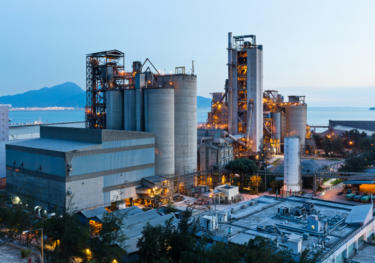How will the resurgence of Covid-19 cases affect the Asian construction sector?
The construction sector in Asia is being buffeted by head and tailwinds which are having markedly different impacts across countries and sub-sectors. The resurgence of Covid-19 cases amid low vaccination rates, and the potential default of Evergrande are further weighing on activity. In this webinar we will discuss the outlook for construction activity in Asia including the risks and implications of the Covid-19 resurgence.
Key questions we will address in this webinar include:
- Fiscal policy has been vital for economic recovery. What has been the policy response and how is it materialising for construction?
- Residential construction activity has remained resilient. What’s driving it and how long will it last for? What can we expect from raw material costs over the next 6-12 months?
- The pandemic has seen some clear winners and losers across non-residential building. At what point will these patterns begin to shift back to ‘normal’?
We will be repeating the same webinar to cater for the difference in time zones between the Americas, APAC and EMEA:
- APAC – Wednesday 15th December | 13:00 AEDT
- EMEA – Wednesday 15th December | 14:00 GMT
- Americas – Friday 17th December | 16:00 EST

April Skinner
Senior EconomistApril is the Economist responsible for producing the Asian Construction Service. The service provides comprehensive analysis and forecasts on building and infrastructure construction across 13 countries in Asia including New Zealand. She has experience in econometric modelling and holds a Master’s degree in econometrics and financial economics.

April Skinner
Senior EconomistApril is the Economist responsible for producing the Asian Construction Service. The service provides comprehensive analysis and forecasts on building and infrastructure construction across 13 countries in Asia including New Zealand. She has experience in econometric modelling and holds a Master’s degree in econometrics and financial economics.
April Skinner | Senior Economist
April is the Economist responsible for producing the Asian Construction Service. The service provides comprehensive analysis and forecasts on building and infrastructure construction across 13 countries in Asia including New Zealand. She has experience in econometric modelling and holds a Master’s degree in econometrics and financial economics.

Nicholas Fearnley
Principal Economist

Nicholas Fearnley
Principal Economist
Nicholas Fearnley | Principal Economist
Nicholas is the Principal Economist responsible for producing the Global Construction Service. He oversees the teams that produce of the Asia Construction Service, and also the Australian Engineering Construction, Mining and Maintenance outlooks. He holds a PhD in economics, regularly hosts webinars and presents at BIS Oxford Economics biannual conferences.
Tags:
Related Services

Event
Outlook gospodarczy dla Polski w świetle prognoz dla gospoarki światowej i europejskiej
A divergence has opened in the world economy, with the US faring much better than China and the eurozone on the growth front. During the webinar, we will shed light on our thinking about world and European outlooks and their influence on the CEE region in general and the Polish economy in particular. We will scrutinize both growth and inflation prospects, views on monetary and fiscal policies as well as implications for FX and bond yields performance.
Find Out More
Event
The path to industrial decarbonization
Progress in de-carbonising industrial activity has been slow relative to other high-emitting sectors in the economy. Nonetheless, recent studies show that the technological potential to electrify is high across most manufacturing processes. Where electrification is not technologically feasible, low-carbon hydrogen may be a viable de-carbonisation tool. In this webinar, we assess which industrial sectors are likely to electrify, and which may need to look to alternatives, in order to de-carbonise. We will also consider some of the factors hampering the pace of the energy transition in industry.
Find Out More